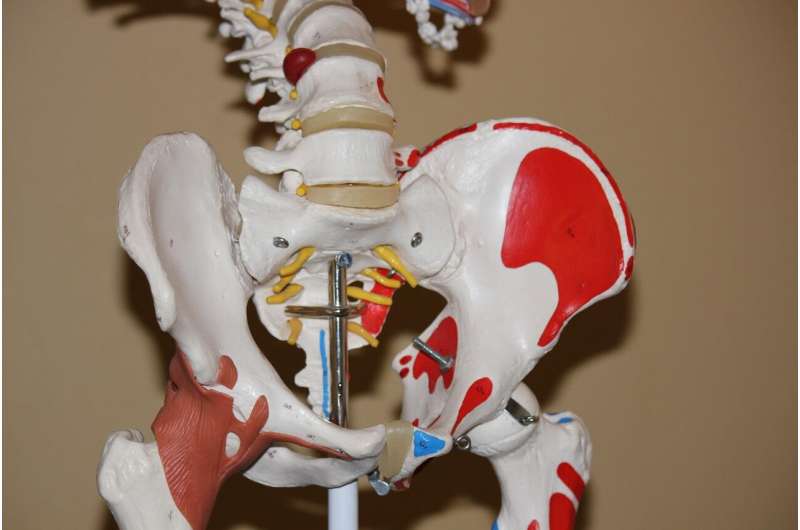This article has been reviewed according to Science X's editorial process and policies. Editors have highlighted the following attributes while ensuring the content's credibility:
fact-checked
trusted source
proofread
HIV patients can safely undergo hip replacement, study finds

Hip replacement surgery is safe for patients living with human immunodeficiency virus (HIV), researchers at UT Southwestern Medical Center found.
Total hip arthroplasty (THA) is a common procedure performed primarily on older patients suffering from osteoarthritis or osteonecrosis, painful conditions that severely limit mobility and lifestyle choices. But some surgeons have been hesitant to perform THAs on patients with HIV or AIDS due to concerns about complications, including higher risk of infection, need for revision surgery, and increased length of hospital stay.
"Patients living with HIV are at a higher risk for orthopedic-related diseases such as osteoarthritis or osteonecrosis of the hip due to changes in their bone metabolism and effects from their medication regimen," said Senthil Sambandam, M.D., Assistant Professor of Orthopaedic Surgery, who led the study.
"With improvements in HIV treatment leading to increased life expectancies, we are seeing a rise in the need for THA procedures in this patient population. Our study demonstrates that HIV-positive patients can safely undergo THA without concern for increased risk of complications and adds to the growing amount of literature that encourages surgeons to deliver appropriate medical care to a marginalized patient population."
Using data from the National Inpatient Sample covering 2016-2019, UTSW researchers identified 504 HIV-positive patients who underwent THAs and compared their postoperative complications to a cohort of 493 HIV-negative patients.
Their findings, published in the Journal of Clinical Orthopaedics and Trauma, showed that postoperative complications such as pneumonia, periprosthetic infection, wound dehiscence (reopening), and superficial and deep surgical site infection were not significantly different between the HIV-positive and HIV-negative groups. Blood transfusion rates also were lower among the HIV-positive patients.
The study was part of a larger effort by the Department of Orthopaedic Surgery to analyze arthroplasty complications in various subpopulations in support of UTSW's commitment to the care of marginalized patient populations and equal treatment for every patient.
"These are important findings because they can help alleviate worries among the medical community about treating a group of patients who are often overlooked," Dr. Sambandam said. "It's an important quality-of-life issue for many HIV-positive patients."
More information: Ashish R. Chowdary et al, Analysis of inpatient complications in HIV/AIDS patients undergoing total hip arthroplasty—A propensity matched cohort study, Journal of Clinical Orthopaedics and Trauma (2023). DOI: 10.1016/j.jcot.2023.102168





















